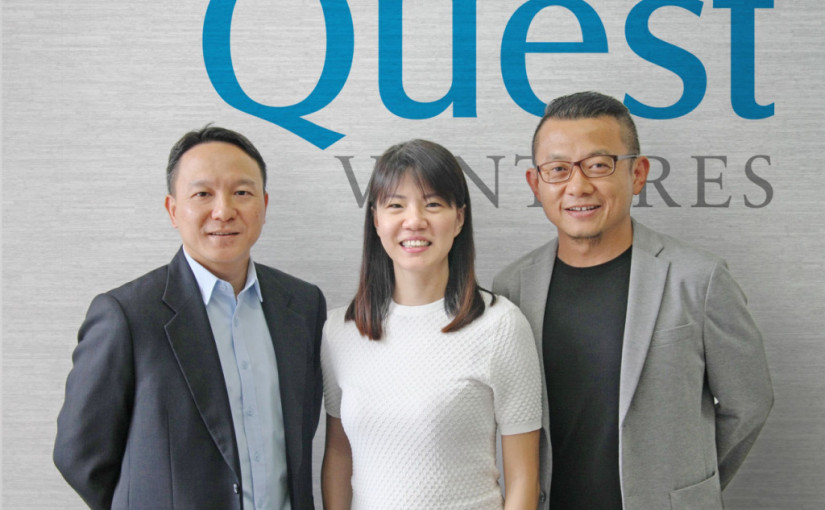Quest Ventures has announced the first round of venture capital fund at $50 million or around Rp778 billion. It is claimed to exceed half of the total target for Asia Fund II.
Previously, in Asia Fund I, Quest Ventures is actively looking for startup with growth potential. Some of their portfolios, including Carousell, Shopback, 99.co, Carro, StyleTheory, SGAG/MGAG/PGAG, Glife, Xfers, and others. In the Asia Fund II, Quest Ventures is backed by some partners, including Singapore-based Pavillion Capital and QazTech Ventures from Kazakhstan.
“We deliberately chose investors because we value financial and operational contributions. Before becoming investors, as operators alone, we value what a diverse team can bring. With this fund, we hope to bring a variety of skills, experience, and connections to help our company,” Quest Ventures’ Partner, Yiping Goh said.
Asia Fund II is to focus on startups in the Southeast Asia region and those with development around Asia. Having previously entered Vietnam in Asia Fund II, Indonesia, Myanmar, and the Philippines are on the radar as their targets in the Post Seed and Pre-Series B rounds.
Quest Ventures also plans to launch an accelerator in Kazakhstan to start a digital economy in the region.
“We see founders who have a strong business and operational foundation who solve problems with women to develop significantly,” Goh added.
Quest Ventures was a China-based firm founded by James Tan and Wang Yunming in 2011. They have an office in Singapore with two Partners, namely Yiping Goh and Jeffrey Seah. Goh had previously been involved in the establishment of Matahari Mall.
Indonesia and the pandemic
DailySocial had the opportunity to talk with Quest Ventures about the company’s focus. Indonesia is on the Asia Fund II radar. As one of the countries with a developing technological landscape, Indonesia has succeeded in proving itself by delivering unicorns. Several industries, such as e-commerce, ride-hailing, and fintech, are taking turns becoming widely known and having an impact on society.
The government which includes the digital economy as one of the pillars of growth along with the raw supply, oil, palm oil, and textile industries is also one of the signs that technology is developing in this country.
“We hope that greater impact will be seen in EdTech, Healthcare, maybe Agritech and even the old topic of e-commerce still diverge opportunities in the enabler and trading ecosystem, such as offline to online, omnichannel, and others. We have seen several examples of successful players like that in the sectors mentioned and hope they continue to grow, “explained Yiping.
Nevertheless, there are several things that are of concern to the condition of Indonesia’s startup ecosystem and industry. First, due to Indonesia’s fast-growing startup business, funding is getting along the development. The challenge is to recruit employees in order to grow.
In Indonesia, Goh said, there are a lot of good talents, it’s just that they are yet to acquired by the increasing number of startups. In addition, the limited recruitment of foreign talent and face-to-face culture. It can also be that the same person will move from one startup to another. And the second is a matter of overvaluation.
“We also see a number of startups taking more money than they need. Although there’s nothing wrong raising more to a longer ‘tide over’, we also hope that startups don’t get into the wrong side of the comfort zone for too long and ‘throw fundamentals into the wind’, ” she added.
Just like countries around the world, Covid-19 pandemic also affected many things in Indonesia. Goh thought this pandemic acts like a big reset button for the world. This will return people to the old ways of building a business and with more balanced financial discipline and growth metrics.
“This [Condition] ‘New normal’ will see higher digital service requests from B2G, B2B, and B2C. Starting to make peace with remote collaboration and perhaps more equilibrium of topline vs bottom line,” Goh said.
–
Original article is in Indonesian, translated by Kristin Siagian
